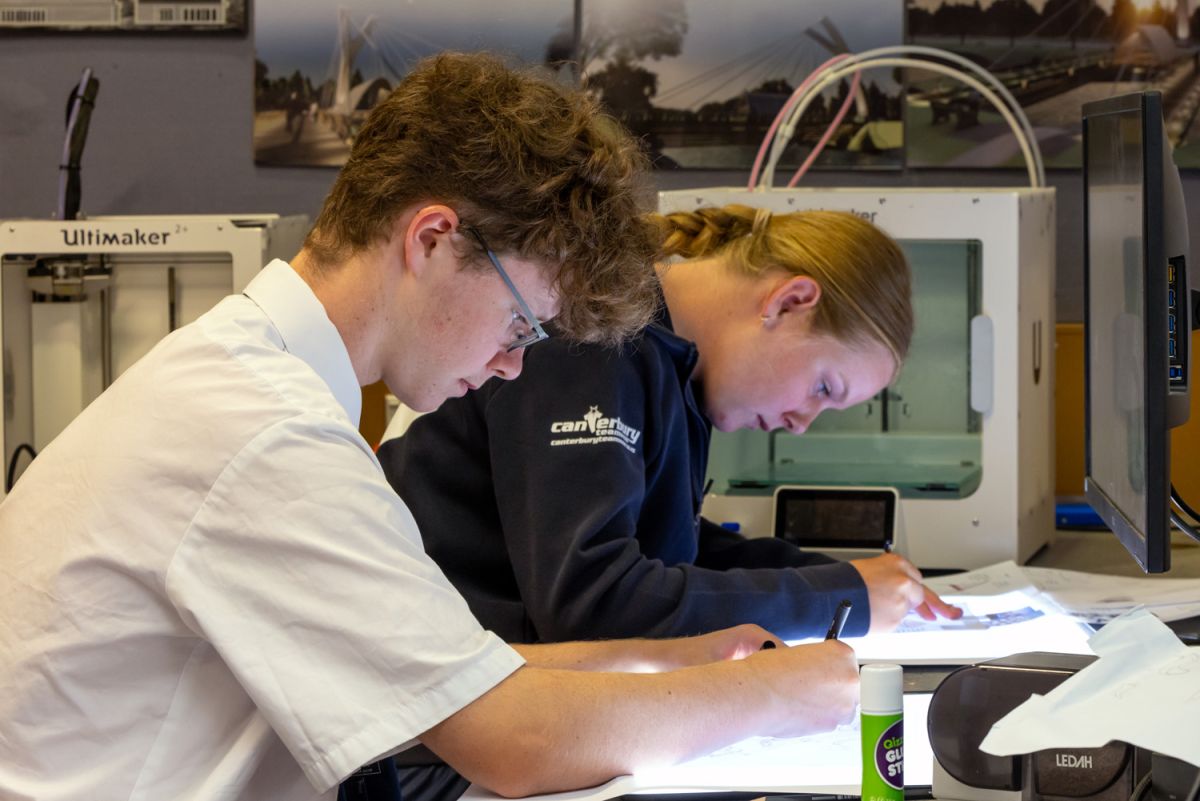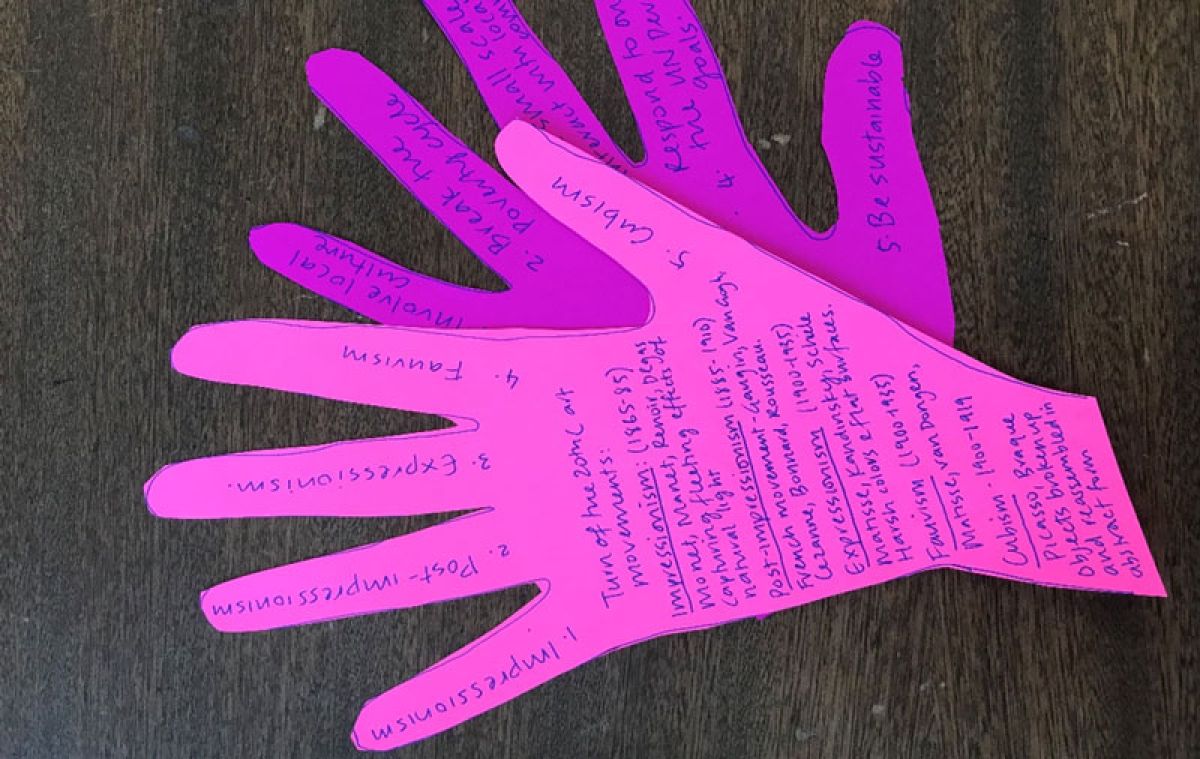Well-being and exam revision
31 October 2024
Written by Head of Well-being, Kerry Larby
It's that time of year where we focus on accomplishing our academic goals.
For some of us, revising for exams can be a stressful time. A little bit of stress or anxiety is okay; it tells us that our exams are important, and it helps us to knuckle down and work hard. However, too much stress can negatively impact the effectiveness of our revision. High levels of cortisol impact on our brain’s ability to function properly. Neuroscientific research shows us that stress has a shrinking effect on the prefrontal cortex, the area of the brain responsible for memory and learning.
Here are some tips to help you build resilience through this time:
Make a plan
Dedicating time to making a revision plan is an important first step (it makes you feel organised and in control of the process). Work out what you need to focus on and then break your revision into manageable chunks.

Know how you work best
It is important to reflect on when and where you work best. There will be certain times of the day when you feel more alert and focused; plan your revision around these times. Creating a space where you feel calm and can avoid distractions is important. You could also alternate your study space to keep revision fresh.
Know how to revise
It is important to use time valuably when revising. From our work with leading Educationalist, Barbara Oakley, these are strategies that we know work:
create visual handwritten notes that use diagrams and metaphors. You can’t revise effectively reading notes on your computer;
the best way to learn is by testing yourself and teaching others;
use the Pomodoro Technique to build the ability to focus and then relax;
start with the most difficult work first;
create brain links with practice, repetition, and recall;
remember that you learn in both a focussed and a diffuse mode. Don’t underestimate what your brain processes when in-between times you are exercising, sleeping and relaxing;
space out your learning to give time for new synapses to form in your brain.

Minimise technology
At times, technology can be a useful tool for revision. Tools like Quizlet can be beneficial for spaced practice. However, we need to acknowledge that access to technology can significantly impact our attention, focus, sleep and deep level thinking – all crucial aspects for learning content.
Technology can lead to passive learning, where we overconsume content (like watching videos) without engaging in active recall or practice. Also, access to social media and gaming has the potential for significant distraction. Dedicating time to revising without any technology will be hugely beneficial, especially in the evening.
Eat well
Eating the right food impacts positively on our memory and focus. Your brain needs energy from good quality food to work efficiently. Maintaining a healthy diet comprised of protein, vegetables, and slow-release carbohydrates is best; it keeps blood sugar levels steady and stops you from having energy dips during the day. It is also important to keep hydrated by drinking two litres of water a day. Eating well on the days of your exams will be particularly important. This article suggests some exam friendly meals and snacks.
Sleep well
When you are feeling under pressure it can be tempting to sacrifice sleep for study time. It is important to remember that sleep is vital for optimal brain function and performance. When we sleep we consolidate our memories. Sleep also allows us to ‘clean the slate’ so we can think effectively and learn the next day. Research says that you should aim to get eight hours of sleep a night.
Having a bedtime routine is important for preparing for a night of good night's sleep. This should involve minimising technology two hours before bedtime and limiting caffeine and sugar.

Exercise
It can seem like you don’t have the time to exercise when you are revising, but if you do you will be much more productive afterward. Exercising at least 30 minutes each day has numerous benefits for your exam performance. Exercise triggers the release of hormones like serotonin and dopamine which influence motivation and improve your mood, memory, and attention. You will process information in diffuse mode when you are exercising.

Ask for help and connect with others
Revision does not have to be done on your own. Remember to connect with other students. Teaching a friend or connecting with your classmates or teacher can be a useful revision strategy. If you are feeling overwhelmed or stressed, talk through your feelings with family or friends.
Reward yourself with breaks
Through this time look for ways to look after yourself. Plan study breaks and reward yourself by doing something you find enjoyable and relaxing. Psychologists say that we can focus for 45 minutes at one stretch, so scheduled breaks are important for our brain function. It is important to remember that to these breaks should be technology-free.

Put things into perspective
Thinking positively and putting things into perspective are important during this time. Remember that the exam preparation time is only a short few weeks and afterward you will have time to rest and relax. This will be much more enjoyable if you are feeling the satisfaction of having tried your best. It is important not to put unnecessary pressure on yourself nor compare yourself to others. And remember, if you have worked hard through the year, you will be well prepared; trust the process.
Oakley, B & Sejnowski, T. (2108). Learning how to learn: A guide for kids and teens. TarcherPerigee, U.S.
Barbara Oakley, TED Talk: Learning how to learn, Oakland University.
Related Posts


